Activities
CfP for two Special Issues on Urban-Rural-Partnerships
As a follow up of the international conference URP2020, which took place as a hybrid conference at UFZ on 26/27 November 2020, two Special Issues on sustainable and resilient Rural-Urban-Partnerships in the journals "Land (MDPI)" and "Raumforschung und Raumordnung | Spatial Research and Planning" will be published. Further information on the CfPs can be found here.
Book on "Urban Air Quality" published by Indian and German scientists
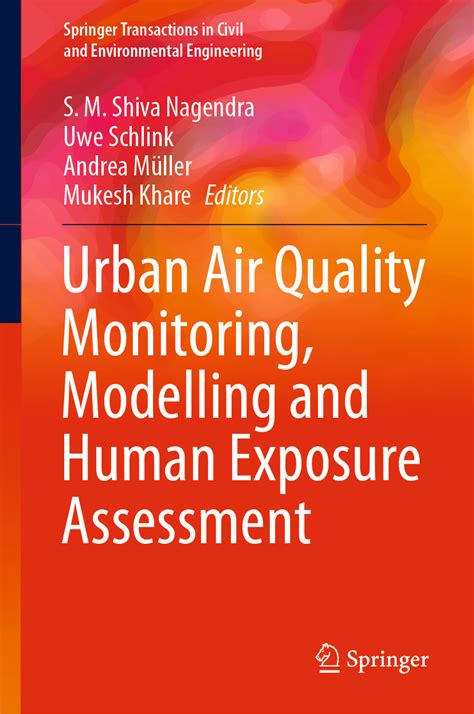 It provides comprehensive information on urban air quality issues and their implementation within monitoring, modelling and management approaches and was edited by an Indian-German team, including the UFZ researchers Dr. Uwe Schlink and Dr. Andrea Müller as well as Dr. Shiva Nagendra,SM from the Indian Institute of Technology Madras and Dr. Mukesh Khare working at the Indian Institute of Technology Delhi.
It provides comprehensive information on urban air quality issues and their implementation within monitoring, modelling and management approaches and was edited by an Indian-German team, including the UFZ researchers Dr. Uwe Schlink and Dr. Andrea Müller as well as Dr. Shiva Nagendra,SM from the Indian Institute of Technology Madras and Dr. Mukesh Khare working at the Indian Institute of Technology Delhi.
“Our cities are sweating”: Interview with Daniel Hertel on his research on heat islands within the Helmholtz Climate Initiative
HI-CAM is a two-year initiative by the Helmholtz association in order to foster interdisciplinary research on adaptation and mitigation strategies in the face of climate change. The knowledge gained can only have an impact if communicated accordingly. Thus, HI-CAM is regularly publishing research results for a wider audience on its website such as interviews with the involved scientists. The meteorologist Daniel Hertel (UFZ) gave an interview on his research on urban heat islands and future livability of our cities within the HI-CAM research project “Urban Systems”. The interview can be accessed on the Helmholtz Climate Initiative.
Members of the International Training Network "RE-CITY" visit UFZ for a secondment
During October and November 2020, Flavio Besana and Faeeza Mackay, two PhD researchers from the International Training Network (ITN) RE-CITY were guests at the Department for Urban and Environmental Sociology. The ITN deals with innovative pathways and perspectives towards liveability for shrinking cites in Europe. UFZ is a partner in this ITN consortium and is represented by Annegret Haase who supervised the secondments.The ITN is closely related to the department’s long-term expertise in shrinking cities research and the focus on researching urban transformations at UFZ since RE-CITY seeks to research smart future solutions for shrinking cities and the transformation needed for that.
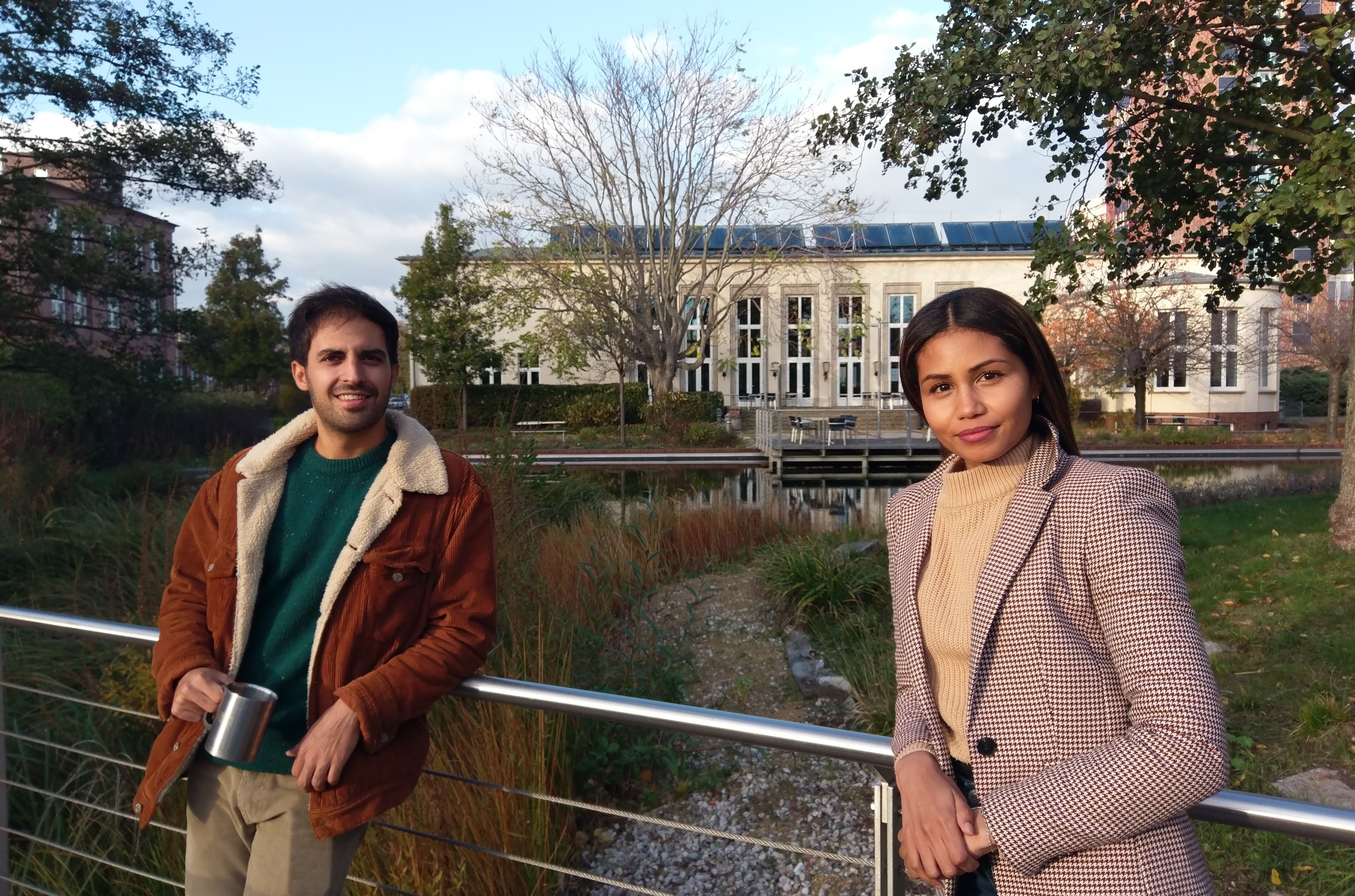
Flavio Besana’s PhD research aims at evaluating the potential impacts of the pandemic, environmental and democratic participation challenges on shrinking cities in the EU. At UFZ he will investigate the Just Transition Fund and its possible territorial implications for European shrinking cities also in light of the pandemic defy. In the attempt of providing insights with a forward looking perspective, he is focused on analysing policy responses with ex-ante methods like the Territorial Impact Assessment and Territorial Foresight. He enjoys statistical data elaboration and their qualitative interpretation to highlight disparities and structural characteristics of European territories. He is affiliated at Spatial Foresight, and co-supervised by the Adam Mickiewicz University in Poznan.
Faeeza Mackay’s PhD aims to assess the dynamics of two regions (experiencing both urban shrinkage and regrowth) and their resilience concerning flood risk. She will explore planning instruments and impacts on the land use response – with an international comparison between regions in Germany and the United Kingdom. Her interest is to incorporate scenario modelling tools/methods, focusing on the built environment and flood risk. She is based at Cambridge Architectural Research and is registered at the Technical University of Kaiserslautern.
IAPS Conference 2020: „Running out of time – Setting the pace for future generations”
This year's conference of the International Association People-Environment Studies (IAPS) took place from June 21 to 26, 2020. Due to the corona pandemic IAPS conference was carried out virtually, coordinated in Québec City. About 400 researchers from various disciplines such as psychology, sociology, geography, design and architecture gathered online for exchanging on the overarching topic "time". With a dense schedule and a creative social program, e.g. with online yoga sessions or informal meetings during mealtime, organizers successfully created a lively conference.
From the IP UrbanTrans three scientists contributed to the conference: Prof. Dr. Sigrun Kabisch presented the development of the large housing estate in Leipzig-Grünau over the past 40 years in the session „Upgrading large housing estates: Stakes and challenges“. She also chaired the symposium “Long-term studies - benefits and pitfalls”, within wich an interesting discussion about different perspectives on long-term studies as a research design evolved. In this symposium Janine Pößneck presented a methodological reflection based on the example of the Grünau interval study. Juliane Schicketanz participated in the Young Researchers Workshop and presented a part of her PhD project about environmental determinants of children’s active school travel with the focus on recently conducted walking interviews with primary school children and their parents.
Anees Mangalasseril Mohammad visited the UFZ as a fellow of the DAAD-Sandwich-Scholarship-Programme
Anees Mangalasseril Mohammad is a PhD student at the School of Environmental Sciences (SES) at the Jawaharlal Nehru University (JNU), New Delhi, India and visited the UFZ as a fellow from October 2019 until September 2020. His research concentrates on analysing urban growth dynamics using remote sensing and delineating its impact on the urban ecosystem. During his stay at the UFZ, he developed a methodology to evaluate ecosystem quality under pressure of urban growth with a special focus on multifunctional green infrastructure and was supervised by Ellen Banzhaf. His outcome is expected to contribute to the resilience of urban ecosystems by implementing his results into local urban planning. He was able to use the know-how at UFZ to complete parts of his doctoral work entitled "Characterizing urban ecosystems in the capital cities of the Western Himalaya". Anees Mangalasseril Mohammad was a scholar of the DAAD Sandwich Programm, which allows doctoral students from other countries to elaborate their skills in a fully funded research period of 12 months in Germany.
HELMHOLTZ ENVIRONMENTAL LECTURE
Prof. Dr. Wolfgang Frey: "In what cities do we want to live? Sustainability as a leading principle for architecture and urban development" (in German)
28 October 2019, 5-7pm
Helmholtz-Centre for Environmental Research – UFZ
Permoserstr. 15 / Leipziger KUBUS, hall 1
Please register for the event until 22 October 2019: www.ufz.de/hel.
LEIPZIG GEOGRAPHICAL COLLOQUIUM in the Winter Semester 2019/2020 "Geographies of Difference and Gender Geographies"
Lecture by Dr.-Ing. Sandra Huning (in German)
"Feminist Perspectives on the city and urban planning"
17 December 2019 / 5.15pm
Helmholtz-Centre for Environmental Research – UFZ
Permoserstr. 15 / Lecture Hall, Building 1.0
Lecture by Prof. Dr. Sybille Bauriedl (in German)
"Gender Justice in the Anthropocene: Social and spatial effects of the climate crisis"
7 January 2020 / 5.15pm
University of Leipzig / Institute for Geography
Talstraße 35 / hall 1
Lecture by Prof. Dr. Carolin Schurr (in German)
"Feministische Geographien der Technowissenschaften"
28 January 2020 / 5.15pm
Leibniz-Institute for Regional Research - IfL / Schongauerstraße 9
The lecture series Leipzig Geographical Colloquium is jointly organized by the Leibniz Institute for Regional Geography, the Helmholtz Centre for Environmental Research - UFZ and the Institute of Geography of the University of Leipzig.
Special Session on "Capturing Urban Green Infrastructure" by Ellen Banzhaf at JURSE 2019
Our colleague Ellen Banzhaf attended the international conference „Joint Urban Remote Sensing Event“, from 22th – 24th May 2019 in Vannes, France. She hosted a special session on “Capturing Urban Green Infrastructure provision using diverse airborne and orbital sensor systems”. This year‘s conference offered a broad program including tutorials, general and special sessions and poster presentations. The keynote "Urban remote sensing for science and policy: gaps in knowledge“ by Prof. Karen Seto, Professor of Geography and Urbanization Science at Yale University was of great significance for our research within the IP Urban Transformations.Prof. Dr. Shiva Nagendra as a visiting fellow at the UFZ
Prof. Dr. S.M. Nagendra from the Indian Institute of Technology Madras (IITM) in Chennai, India, visited the UFZ from 14 May to 5 June 2019. The IITM cooperates with the UFZ department of Molecular Systems Biology (Dr. Andrea Müller) and the department of Urban and Environmental Sociology (Prof. Dr. Uwe Schlink) for the determination of urban health risks within the DAAD project “Toxicity and exposure assessment of fine particulate matter under changing climatic conditions”.Annegret Haase as a visiting fellow at the University of Łódź
Dr. Annegret Haase completed a research and teaching stay based on an international grant at the University of Łódź, Poland, at the Faculty of Economy and Sociology, in April and May 2019. During this stay, she organized a workshop on the topic “Environmental justice in postsocialist cities” together with Prof. Jakub Kronenberg and Dr. Ewa Laszkiewicz from the University of Łódź.LEIPZIG GEOGRAPHICAL COLLOQUIUM in the Summer Semester 2019 "Rural Areas revisited"
Lecture by Dr. Annett Steinführer, Thünen-Institute of Rural Studies (in German):
"Auf’s Land! Warum Dörfer und kleine Städte mehr wissenschaftliche Neugier verdienen"
Tuesday, 28 May 2019 at 5.15 pm
UFZ, Permoserstraße 15, Lecture Hall, Building 1.0
Further information on the lecture can be found on the (German) poster of the event.
The lecture series Leipzig Geographical Colloquium is jointly organized by the Leibniz Institute for Regional Geography, the Helmholtz Centre for Environmental Research - UFZ and the Institute of Geography of the University of Leipzig.
"From the First World War until today" – Fourth Edition of the History of the City of Leipzig has been published on 25 April 2019
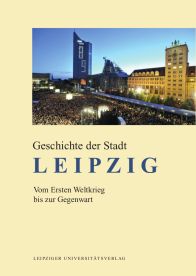 The fourth and last edition of the scientific history of the City of Leipzig has been published and is dealing with political catastrophes and radical changes. It comprises 1.200 pages and describes the situation in Leipzig during two World Wars, revolutions, the GDR regime and Leipzig's new beginning after the German reunification.
The fourth and last edition of the scientific history of the City of Leipzig has been published and is dealing with political catastrophes and radical changes. It comprises 1.200 pages and describes the situation in Leipzig during two World Wars, revolutions, the GDR regime and Leipzig's new beginning after the German reunification.
It includes contributions from members of the IP Urban Tranformations: Prof. Dr. Sigrun Kabisch wrote the contribution "Schlaglicht: Leipzig-Grünau" and the chapter "Von der Schrumpfung zum Wachstum - Demographische und ökonomisch-soziale Entwicklungen", together with Prof. Dr. Dieter Rink.
Leipzig Geographic Colloquiums in Winter Semester 2018/19
4.12.18, 17.15-19.00 p.m., Kubus, Helmholtz Centre for Environmental Research - UFZ:
Vorstellung von Studienergebnissen zur Wohnsituation und zu den Versorgungsdefiziten in deutschen Großstädten und Evaluierung wohnungspolitischer Instrumente (Förderung, Mietpreisbremse, Wohngeld) vor diesem Hintergrund.
The lecture series Leipzig Geographical Colloquium is jointly organized by the Leibniz Institute for Regional Geography, the Helmholtz Centre for Environmental Research - UFZ and the Institute of Geography of the University of Leipzig.
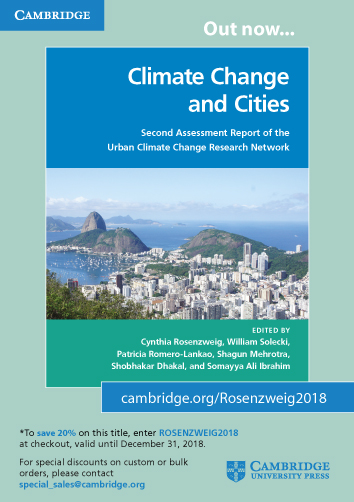 The Urban Climate Change Research Network (UCCRN) recently published its Second Assessment Report (ARC3.2): "
Climate Change and Cities
- Second Assessment Report of the Urban Climate Change Research Network". This is the result of an approx. five year process, gathering together more than 350 authors from over 100 cities worldwide to inform mayors, city officials and policymakers, urban planners, and a broad spectrum of researchers and advanced students in the environmental sciences on the development and implementation of effective urban climate change policies, leveraging ongoing and planned investments for populations in cities of developing, emerging, and developed countries. The ARC3.2 Summary for City Leaders was already presented in December 2015 at a UCCRN side session at the 21st UNFCCC Conference of the Parties (COP21) in Paris.
The Urban Climate Change Research Network (UCCRN) recently published its Second Assessment Report (ARC3.2): "
Climate Change and Cities
- Second Assessment Report of the Urban Climate Change Research Network". This is the result of an approx. five year process, gathering together more than 350 authors from over 100 cities worldwide to inform mayors, city officials and policymakers, urban planners, and a broad spectrum of researchers and advanced students in the environmental sciences on the development and implementation of effective urban climate change policies, leveraging ongoing and planned investments for populations in cities of developing, emerging, and developed countries. The ARC3.2 Summary for City Leaders was already presented in December 2015 at a UCCRN side session at the 21st UNFCCC Conference of the Parties (COP21) in Paris.
UFZ actively contributed to this Report as Coordinating Lead Authors, Lead Authors and with specific Case Studies on Santiago de Chile, Dar es Salaam and Jena. The experience to be part of this huge initiative and long-lasting process was tremendous. The network that has been built provides an excellent basis for future collaboration.
On September 18, 2018, Dr. Kerstin Krellenberg and Dr. Nathalie Jean-Baptiste , both currently guest scientists at the Department of Urban and Environmental Sociology at UFZ, presented the main findings of the Report and talked about their personal experiences as Coordinating Lead Author and Lead Author of this Report.
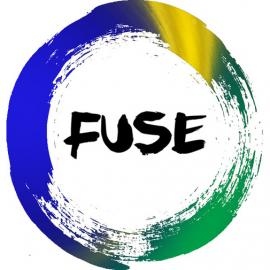 FUSE-Workshop on Sustainable Living Labs
FUSE-Workshop on Sustainable Living Labs
On September 10th and 11th, the UFZ
FUSE
team was happy to receive the project partners from ÖFSE, Vienna, to jointly develop the participation process inherent to the project. At UFZ, FUSE is located in the three IPs Urban Transformations, Water Scarcity and From Models to Predictions. The workshop was hosted jointly by the Departments Economics and Urban and Environmental Sociology.
For both case study cities, Amman (Jordan) and Pune (India), Sustainable Living Labs (SLL) will play a central role in the development of the coupled hydro-geological and agent-based food-water-energy model. The first stakeholder workshops will be conducted in February and March next year.
The workshop also provided further clarification on terms and definitions used within the project and provided a first common understanding on the local contexts.
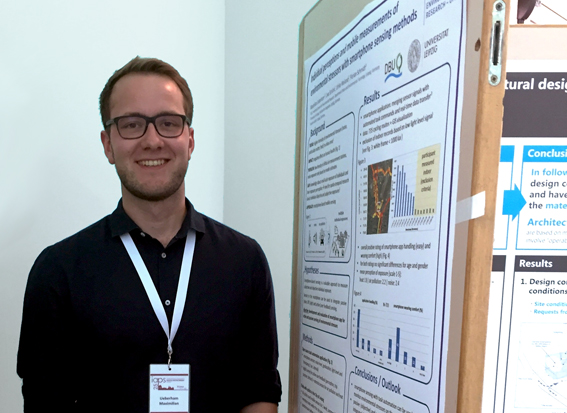 PhD candidate M. Ueberham presented his poster titled Mobile measurements of environmental burdens and perception of expositions, photo: S. Kabisch
In July 2018, we engaged in an inspiring, international and highly interdisciplinary IAPS conference in Rome for one week. The acronym IAPS stands for International Association of People-Environment Studies: it’s all about environmental research from global to local aspects. This association especially relates to the needs and challenges of humans in their respective environments. The UFZ was well-represented with convening two symposia, giving several talks, and exhibiting a poster, all related to our key issue urban transformations. The symposia on Green Infrastructure (GI) dealt with the respective foci GI to human well-being, and GI for a diversifying urban society. Having been well-attended, we could experience exciting scientific discussions and foster our networking. Other formats, such as the Young Researchers Workshop and Poster Session gave splendid opportunities for our young researchers to exchange with experienced international senior scientists and shed light to their research questions from different research angles.
PhD candidate M. Ueberham presented his poster titled Mobile measurements of environmental burdens and perception of expositions, photo: S. Kabisch
In July 2018, we engaged in an inspiring, international and highly interdisciplinary IAPS conference in Rome for one week. The acronym IAPS stands for International Association of People-Environment Studies: it’s all about environmental research from global to local aspects. This association especially relates to the needs and challenges of humans in their respective environments. The UFZ was well-represented with convening two symposia, giving several talks, and exhibiting a poster, all related to our key issue urban transformations. The symposia on Green Infrastructure (GI) dealt with the respective foci GI to human well-being, and GI for a diversifying urban society. Having been well-attended, we could experience exciting scientific discussions and foster our networking. Other formats, such as the Young Researchers Workshop and Poster Session gave splendid opportunities for our young researchers to exchange with experienced international senior scientists and shed light to their research questions from different research angles.
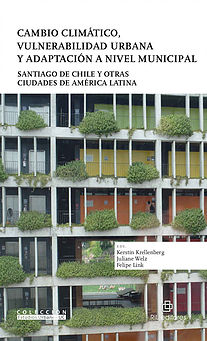
The Helmholtz International Research Group CLAVE, a cooperation between the UFZ and the Pontificia Universidad Católica de Chile, has published a book on "Climate change, urban vulnerability and adaptation at the municipal level. Santiago de Chile and other cities in Latin America". It emphasizes the challenges of climate change and related impacts in different municipalities of the Metropolitan Region of Santiago de Chile. It reveals the interlinkages of socio-environmental fragmentation and urban vulnerability and points out the institutional adaptive capacity at the municipal level. It highlights adaptation needs according to the assessed vulnerability, which were developed in strong colaboration with the municipalities. Perspectives of other Latin American Metropolitan Regions complement with an international dimension.
Recently, the European Commission published the report on Science for Disaster Risk Management 2017. The report provides reviews of the scientific evidence base and its practical use in various areas of disaster risk management, in a format that is intended to be accessible to the well-informed practitioner. IP Member C. Kuhlicke was involved in the topic “risk perception”. The full report can be downloaded here.
Together with an interdisciplinary team of international social and environmental scientists, colleagues from the department of urban and environmental sociology as well as the IP Urban Transformations published a positioning paper on the topic of urban greening and social justice (Source: Haase, D., Kabisch, S., Haase, A. et al. 2017. Greening cities – To be socially inclusive? About the alleged paradox of society and ecology in cities. Habitat International Volume 64, June 2017, Pages 41–48 DOI: 10.1016/j.habitatint.2017.04.005). The paper discusses current challenges of a sustainable and green urban development set against the background of growing socio-spatial inequalities in cities and unsolved justice issues. The authors suggest six concrete prerequisites for a green and socially inclusive development, e.g. the acknowledgement of existing trade-offs between social and ecological processes, the inclusion of different opinions, wants and needs into planning, a focus on multi-actor governance as well as a political contextualization of the debate. The publication draws on results of an international workshop at UFZ on 1 June 2015 with 25 participants.
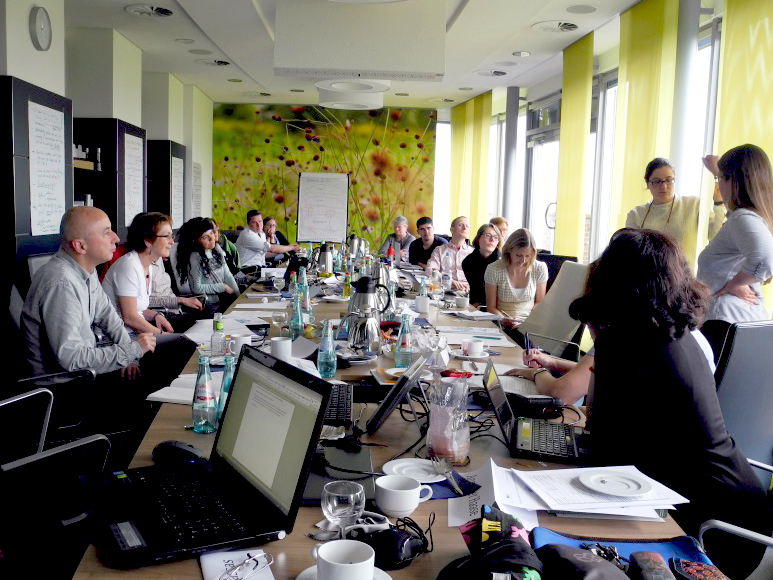
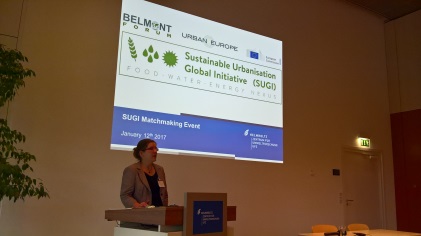 On January 12, 2017 a Matchmaking event for the joint Belmont Forum/JPI Urban Europe SUGI/Food-Water-Energy Nexus Call was organized by IP-members. At the same occasion, the regular meetings of the Scientific Advisory Board of JPI Urban Europe and UERA took place.
On January 12, 2017 a Matchmaking event for the joint Belmont Forum/JPI Urban Europe SUGI/Food-Water-Energy Nexus Call was organized by IP-members. At the same occasion, the regular meetings of the Scientific Advisory Board of JPI Urban Europe and UERA took place.
The Sustainable Urbanisation Global Initiative (SUGI)/Food-Water-Energy Nexus Call is jointly established by the Belmont Forum and the Joint Programming Initiative (JPI) Urban Europe. The cooperation aims at bringing together the fragmented research and expertise across the globe to find innovative new solutions to the Food-Water-Energy (FWE) Nexus challenge for sustainable urbanisation. Belmont Forum and JPI Urban Europe have partnered to ensure participants across physical, natural, social sciences, arts and humanities as well as decision makers and other stakeholders around the world. The overall goal is to rapidly evolve the knowledge base and advance indicators and assessment tools that are needed for a comprehensive understanding of the FWE nexus. The Matchmaking event at UFZ brought together a wide range of approx. 50 international participants, interested in active exchange to build up international consortia for the submission of project proposals. With the involvement of representatives of the managing board of JPI Urban Europe and Projektträger Jülich, participants were provided with additional information on content and organizational issues concerning to the call.
Contact person at UFZ:
Dr. Kerstin Krellenberg, Department Urban and Environmental Sociology
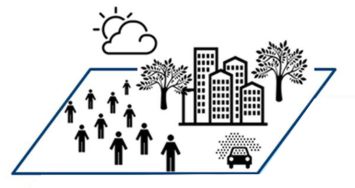 Organization of the Workshop “Environmental Justice and Quality of Life in Urban Transformations” within the IP Urban Transformations with a presentation by Christiane Bunge (Umweltbundesamt - German Environment Agency) on “Environmental justice contributing to the quality of life – areas of action for research, politics and practice” and the following short inputs from current IP projects: “Socio-spatial distribution of air pollution in Berlin. An Indicator for environmental quality, quality of life and environmental justice” by Dr. Annegret Kindler, “Individual-related expositions and vulnerabilities to environmental pollution in the urban space – potentials of mobile measurements” by Max Ueberham and “Environmental law and justice in the city” by Dr. Moritz Reese. In the following discussion, the concepts of environmental justice and equity were distinguished and put into context with the exposition of urban individuals to environmental risks.
Organization of the Workshop “Environmental Justice and Quality of Life in Urban Transformations” within the IP Urban Transformations with a presentation by Christiane Bunge (Umweltbundesamt - German Environment Agency) on “Environmental justice contributing to the quality of life – areas of action for research, politics and practice” and the following short inputs from current IP projects: “Socio-spatial distribution of air pollution in Berlin. An Indicator for environmental quality, quality of life and environmental justice” by Dr. Annegret Kindler, “Individual-related expositions and vulnerabilities to environmental pollution in the urban space – potentials of mobile measurements” by Max Ueberham and “Environmental law and justice in the city” by Dr. Moritz Reese. In the following discussion, the concepts of environmental justice and equity were distinguished and put into context with the exposition of urban individuals to environmental risks.
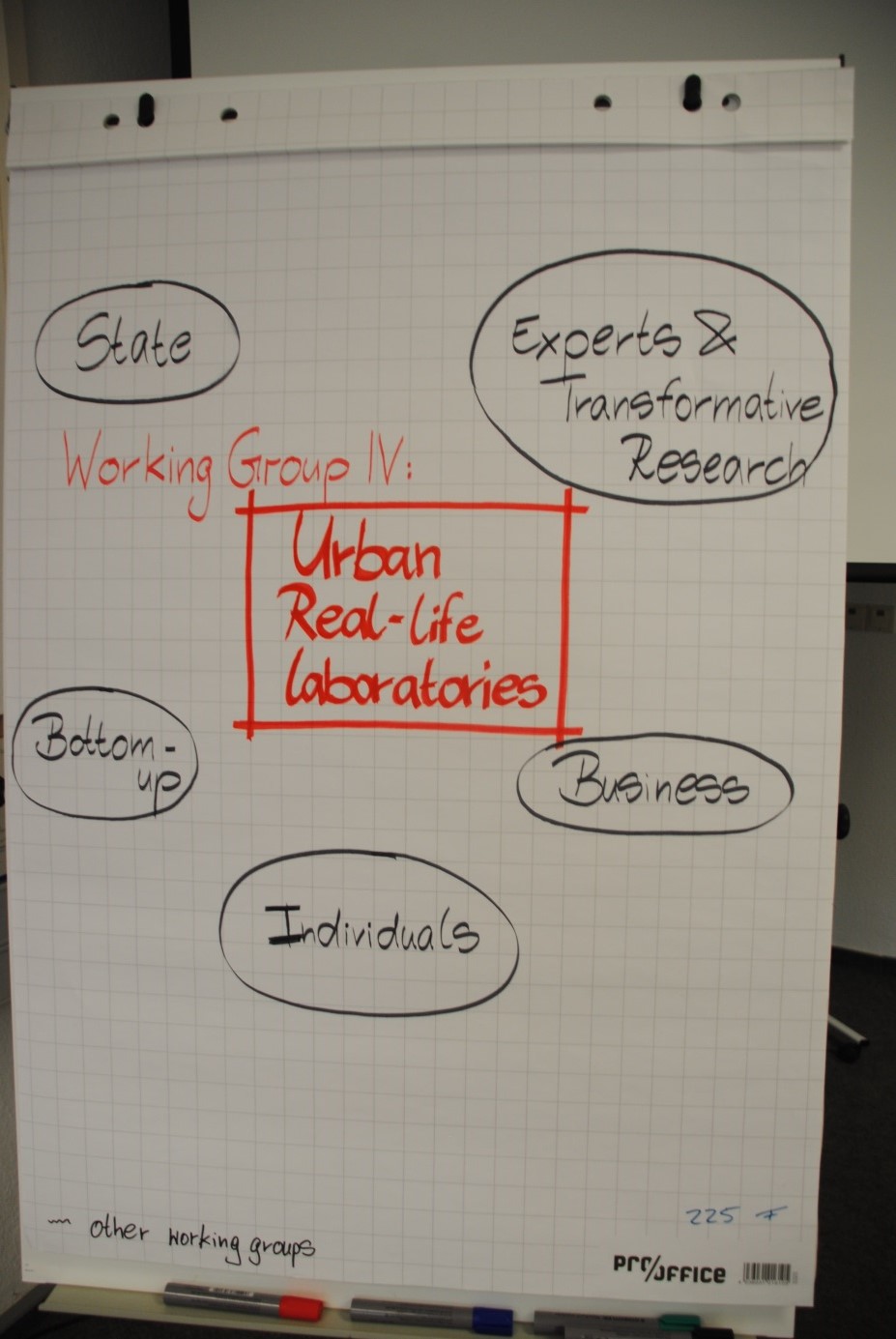 Foto: IP UrbTrans/UFZ
Das IP Urbane Transformationen organisierte die Arbeitsgruppe „Urban Real World Laboratories (RWL)” im Rahmen des UFZ-Workshops „Unpacking the political in contemporary discourses on sustainability transformations: Scoping a research area for applied social science”. Nach einer Präsentation von Matthias Wanner (Wuppertal Institut, TransZent) zu aktuellen RWL-Forschungsprojekten und dem WBGU-Gutachten „Der Umzug der Menschheit“ wurden Potenziale und Limitierungen der RWL als Forschungsansatz, sowie die Rolle der Wissenschaft in derartigen Projekten diskutiert.
Foto: IP UrbTrans/UFZ
Das IP Urbane Transformationen organisierte die Arbeitsgruppe „Urban Real World Laboratories (RWL)” im Rahmen des UFZ-Workshops „Unpacking the political in contemporary discourses on sustainability transformations: Scoping a research area for applied social science”. Nach einer Präsentation von Matthias Wanner (Wuppertal Institut, TransZent) zu aktuellen RWL-Forschungsprojekten und dem WBGU-Gutachten „Der Umzug der Menschheit“ wurden Potenziale und Limitierungen der RWL als Forschungsansatz, sowie die Rolle der Wissenschaft in derartigen Projekten diskutiert.
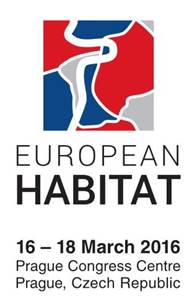 The Side Event “Urban sustainability transformations in European Cities”. Organized by the IP UrbTrans in cooperation with the City
of Brno, City of Leipzig and the Joint Programing Initiative JPI Urban
Europe. Prague, Regional UN Habitat III Conference, 16-18 march, 2016. A short summary of the side event can be found
here
The Side Event “Urban sustainability transformations in European Cities”. Organized by the IP UrbTrans in cooperation with the City
of Brno, City of Leipzig and the Joint Programing Initiative JPI Urban
Europe. Prague, Regional UN Habitat III Conference, 16-18 march, 2016. A short summary of the side event can be found
here
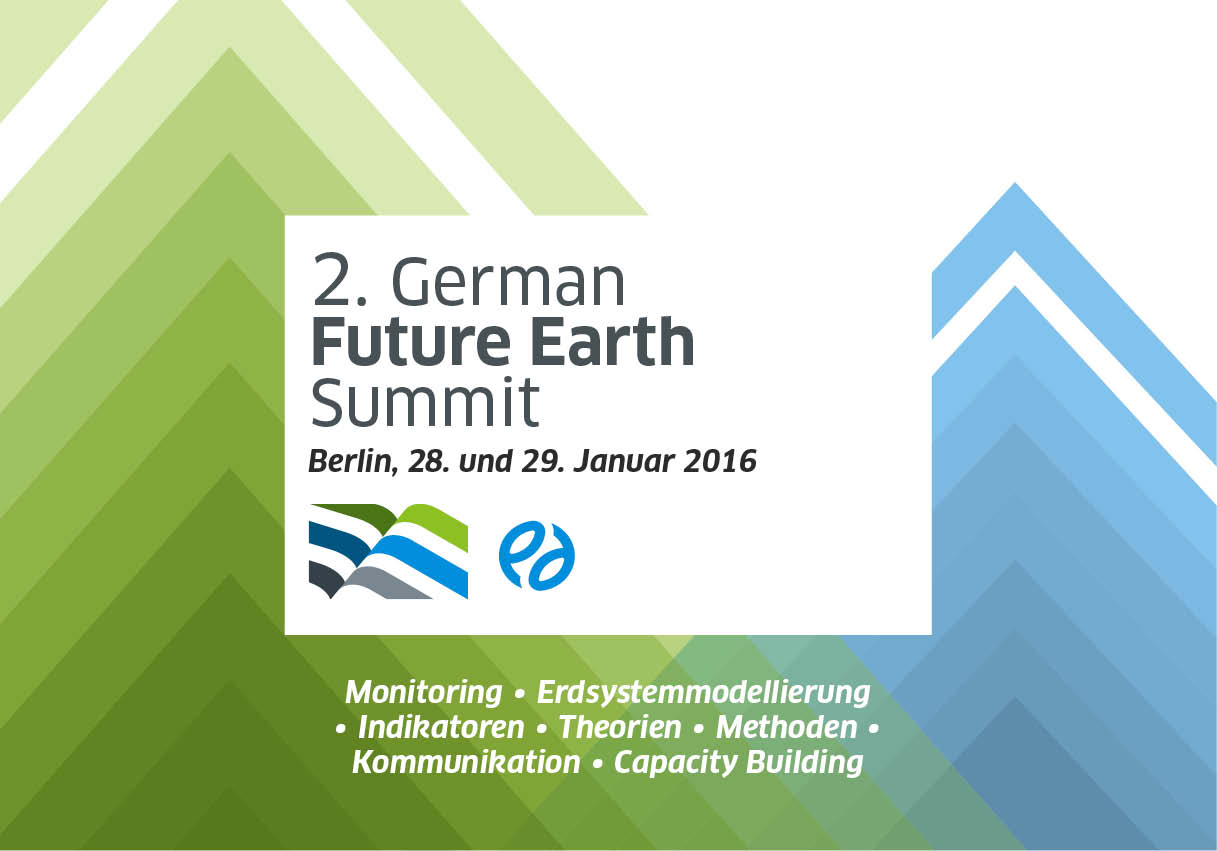 The conference report of the 2nd German Future Earth Summit (January 2016 in Berlin) has recently been published including a description of the Side Event on “Integrative urban studies: urban sustainability transformations theme picnic” which was organized by our IP. The report is available online .
The conference report of the 2nd German Future Earth Summit (January 2016 in Berlin) has recently been published including a description of the Side Event on “Integrative urban studies: urban sustainability transformations theme picnic” which was organized by our IP. The report is available online .
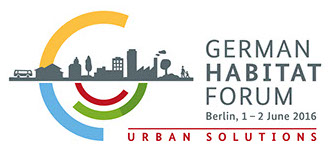 The Federal Ministry for Economic Cooperation and Development (BMZ) and the federal state of Berlin are hosting the German Habitat Forum in Berlin on 1 and 2 June 2016. The aim in the forum is to debate sustainable solutions to urban challenges. More information: http://www.german-habitat-forum.de
The Federal Ministry for Economic Cooperation and Development (BMZ) and the federal state of Berlin are hosting the German Habitat Forum in Berlin on 1 and 2 June 2016. The aim in the forum is to debate sustainable solutions to urban challenges. More information: http://www.german-habitat-forum.de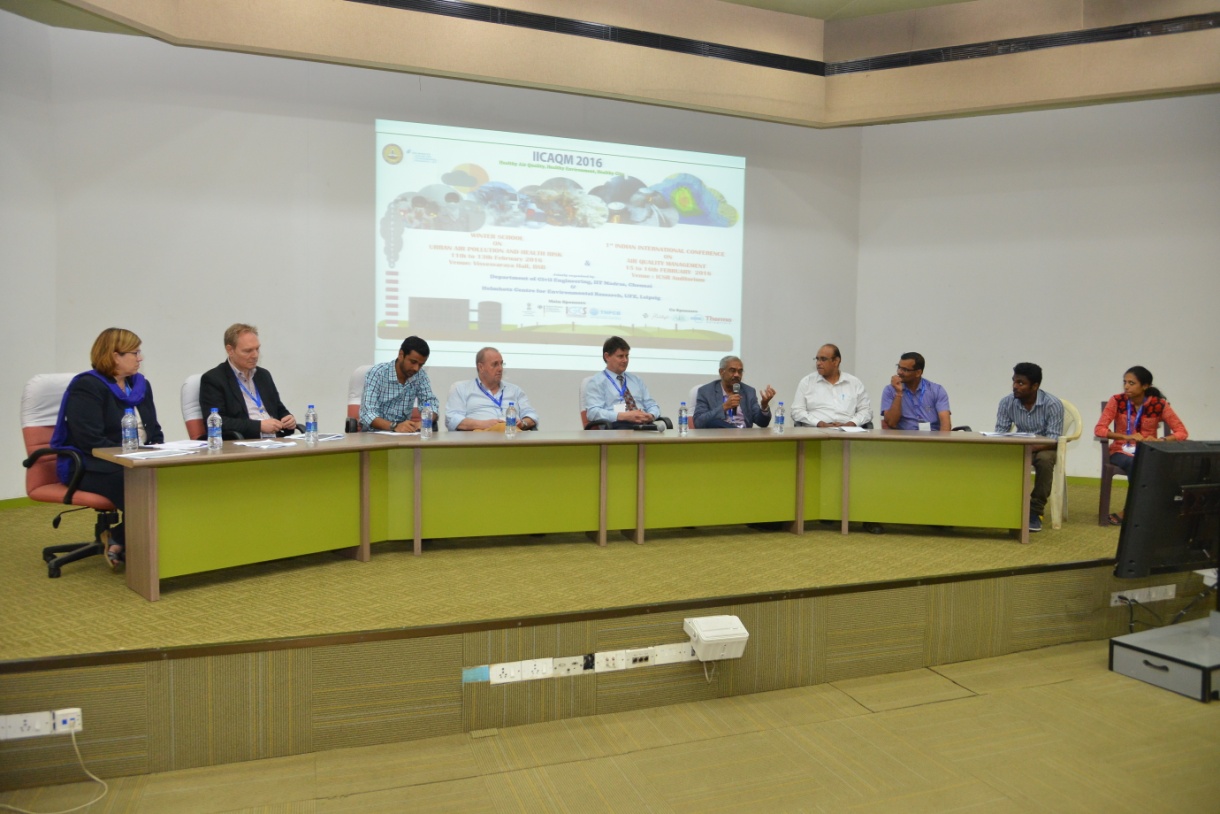
Indian International Conference on Air Quality Management (IICAQM 2016) with pre-conference “Winter School on Urban Air Pollution and Health Risks” in Chennai, India
Supported by the Indo-German Centre for Sustainability (IGCS), during 15th-16th February 2016, the IITM and UFZ jointly organized the Indian International Conference on Air Quality Management (IICAQM 2016) in Chennai. The conference topics included Air Quality Monitoring and Measuring Techniques, Air Quality Modelling, Emission Inventory, Source Apportionment, Source Receptor Modelling, Exposure Monitoring and Health Risk Assessment, Industrial Air Pollution and Control Technologies, Indoor Air Quality, Local, Regional and Global Air Pollution Case Studies. The UFZ participants, Prof. Dr. Uwe Schlink (Dept. Urban and Environmental Sociology) and Dr. Andrea Müller (Dept. Molecular Systems Biology), provided invited talks as well as lectures to the pre-conference winter school during February 11th – 13th. Cooperative research is made in the frame of the BMBF funded bilateral project “Air quality management system to study the vulnerability and health risks due to air pollution and climate change in urban areas”.
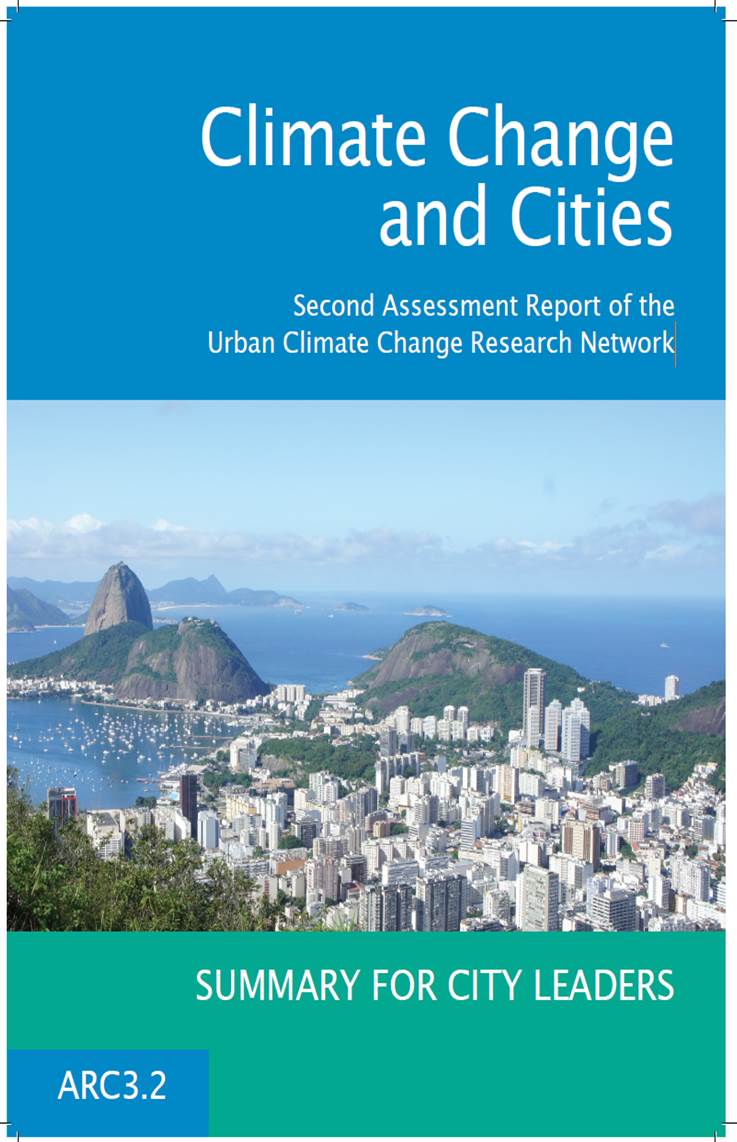 The new Assessment Report "Climate Change and Cities" by the Urban Climate Change Research Network (http://uccrn.org/) was published recently. Several IP-research contributet to the report. The short summary (Summary for City Leaders) can be found
here
.
The new Assessment Report "Climate Change and Cities" by the Urban Climate Change Research Network (http://uccrn.org/) was published recently. Several IP-research contributet to the report. The short summary (Summary for City Leaders) can be found
here
.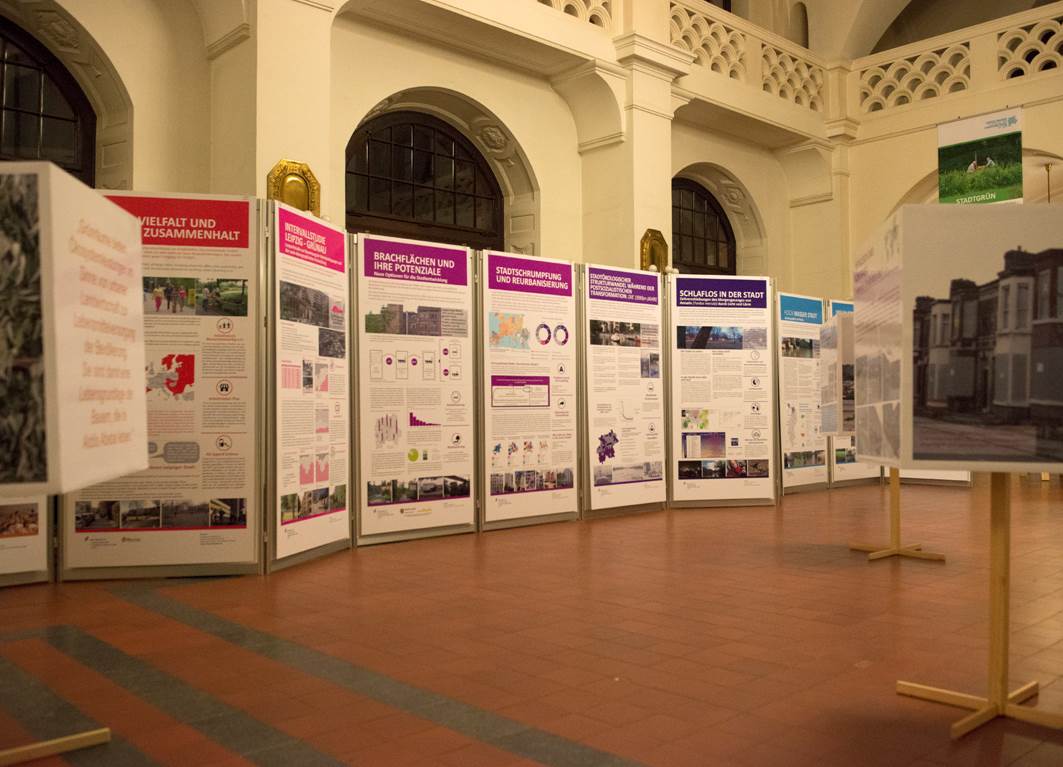 The exhibition „Leipzigs Wandel im Spiegel der Stadtforschung am UFZ“ (Leipzig's change mirrored by the urban research at UFZ) is now shown at UFZ’s building 1.0 in Leipzig (first floor Foyer and next to plenary hall, plus third floor for the aerial map of Leipzig). This exhibition was a UFZ contribution to the 1000th anniversary of the City of Leipzig and successfully shown in November at the New City Hall Leipzig. Until end of January 2016 all posters, banners, videos and cubes of the exhibition are at UFZ Leipzig. You are most welcome to visit the exhibition.
The exhibition „Leipzigs Wandel im Spiegel der Stadtforschung am UFZ“ (Leipzig's change mirrored by the urban research at UFZ) is now shown at UFZ’s building 1.0 in Leipzig (first floor Foyer and next to plenary hall, plus third floor for the aerial map of Leipzig). This exhibition was a UFZ contribution to the 1000th anniversary of the City of Leipzig and successfully shown in November at the New City Hall Leipzig. Until end of January 2016 all posters, banners, videos and cubes of the exhibition are at UFZ Leipzig. You are most welcome to visit the exhibition.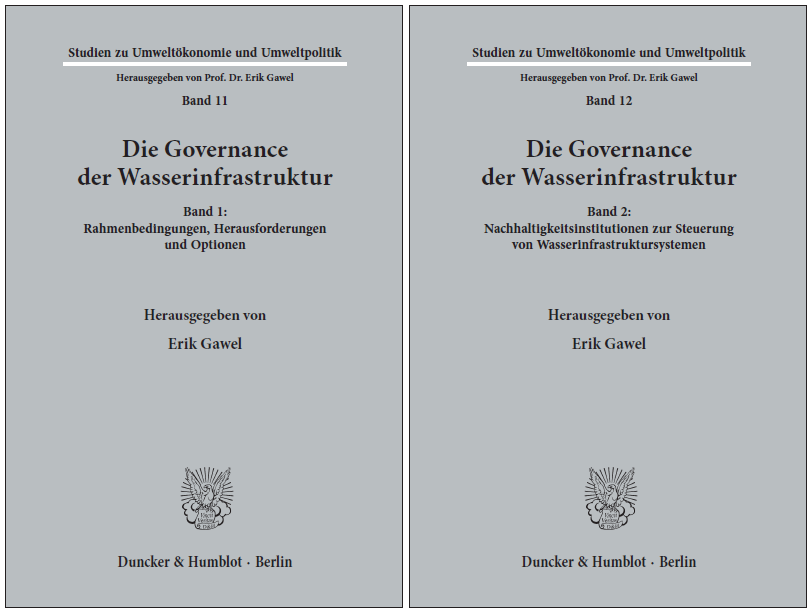 Two anthologies on "Governance of water infrastructure" (Volume 1: Rahmenbedingungen, Herausforderungen und Optionen and Volume 2: Nachhaltigkeitsinstitutionen zur Steuerung von Wasserinfrastruktursystemen) were published and written by E. Gawel (with N. Bedtke, M. Reese, W. Köck). The interdisciplinary articles from science and practice analyze the future viability of water supply and wastewater disposal in Germany and Europe. On this basis, they develop ideas for the design of “institutions” to secure a sustainable governance of long-term infrastructure decisions.
Two anthologies on "Governance of water infrastructure" (Volume 1: Rahmenbedingungen, Herausforderungen und Optionen and Volume 2: Nachhaltigkeitsinstitutionen zur Steuerung von Wasserinfrastruktursystemen) were published and written by E. Gawel (with N. Bedtke, M. Reese, W. Köck). The interdisciplinary articles from science and practice analyze the future viability of water supply and wastewater disposal in Germany and Europe. On this basis, they develop ideas for the design of “institutions” to secure a sustainable governance of long-term infrastructure decisions. Anouncement for three international conferences on environmental urban studies:
- 8th European Conference on Sustainable Cities & Towns. Transformative Action: the potential for Europe. Organized by ICLEI Europe. Bilbao, Basque Country, Spain, 27-29 April 2016. More information
- 24. IAPS-conference in Lund/Sweden, 27 June -1 July 2016 and Young Researchers Workshop 26 – 27 June 2016. Abstract submission until 15 December 2015. More information
- Urban Cultures of Sustainability: International Graduate and Doctoral Student
Workshop at Freiburg Institute for Advanced Studies (FRIAS) at the Albert-Ludwig-University Freiburg, 11–14 July 2016. More information
- Call for Contributions: We are currently working on an edited volume, which reflects the work of our IP. Our idea is to make this book a truly interdisciplinary result of our IP work. IP members are cordially invited to participate in this project, please let us know until August 31, 2015 if you want to write particiapte with an article on your work realized in the IP Urban Transformations. For further information please contact florian.koch@ufz.de .
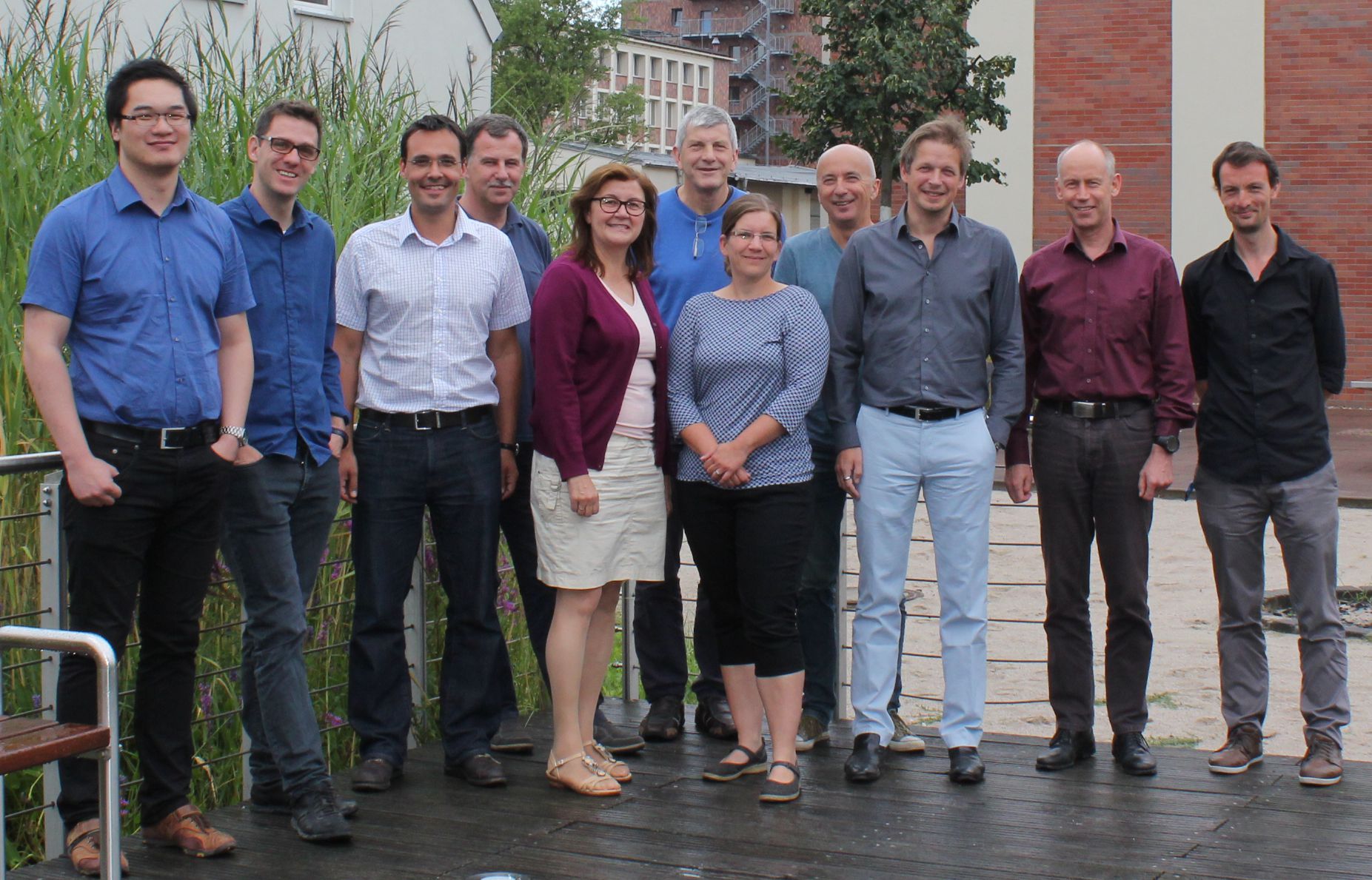 GCITY_4D – „Heat Transformation" in urban areas On August 27 and 28, 2015 social and Natural sciences researchers from three different Helmholtz Centres discused at the UFZ in Leipzig, how shallow geothermal energy can contribute to the energy supply of cities. Further information:
Olaf Kolditz
.
GCITY_4D – „Heat Transformation" in urban areas On August 27 and 28, 2015 social and Natural sciences researchers from three different Helmholtz Centres discused at the UFZ in Leipzig, how shallow geothermal energy can contribute to the energy supply of cities. Further information:
Olaf Kolditz
.
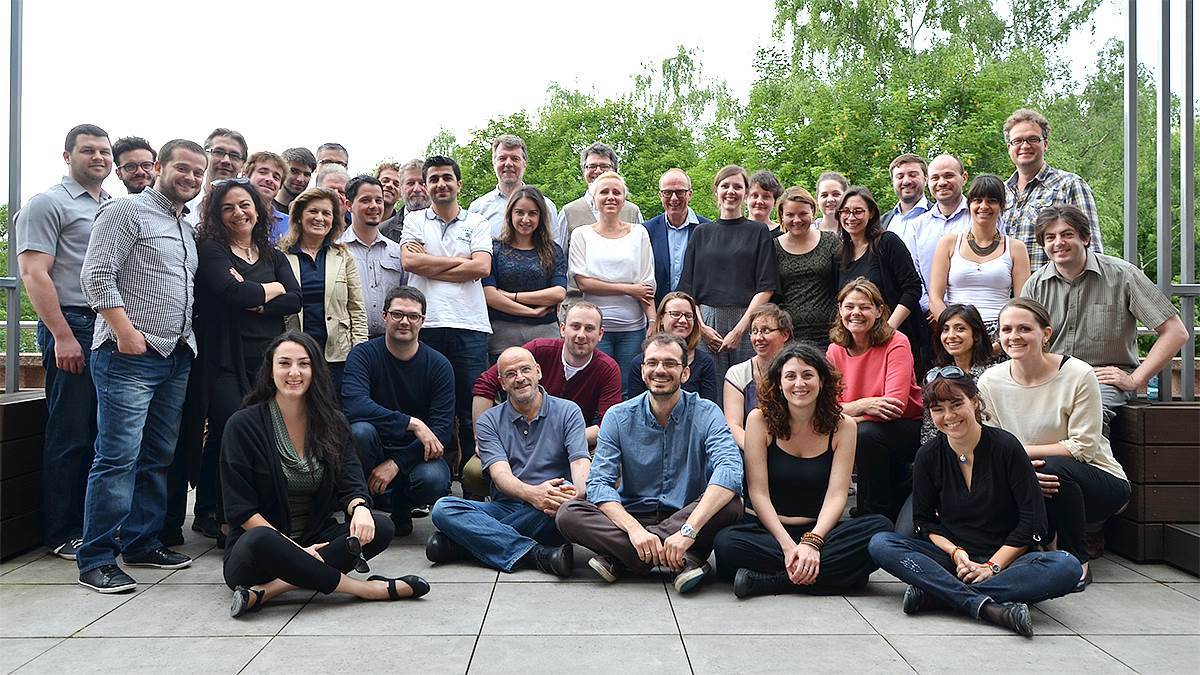 The consortium meeting of the EU-Project “Divercities – Governing Urban Diversity” (www.urbandivercities.eu) was held June 24-27 at UFZ. The project investigates how urban diversity can contribute to social cohesion, social mobility and economic performance in cities and neighbourhoods. The research is based on 14 European cities. The international meeting congregated 14 partner institutions and 47 researchers from all over Europe in Leipzig. On June 25, in the context of the consortium meeting, two public lectures by Yuri Kazepov (University Vienna, Austria), Kadri Leetmaa and Tiit Tammaru (University of Tartu, Estland) addressed the role of social differentiation and poverty alleviation in sustainable urban development. The meeting concluded with a workshop discussing “Urban Diversity vs. Urban Inequality”. Further information:
Annegret Haase
The consortium meeting of the EU-Project “Divercities – Governing Urban Diversity” (www.urbandivercities.eu) was held June 24-27 at UFZ. The project investigates how urban diversity can contribute to social cohesion, social mobility and economic performance in cities and neighbourhoods. The research is based on 14 European cities. The international meeting congregated 14 partner institutions and 47 researchers from all over Europe in Leipzig. On June 25, in the context of the consortium meeting, two public lectures by Yuri Kazepov (University Vienna, Austria), Kadri Leetmaa and Tiit Tammaru (University of Tartu, Estland) addressed the role of social differentiation and poverty alleviation in sustainable urban development. The meeting concluded with a workshop discussing “Urban Diversity vs. Urban Inequality”. Further information:
Annegret Haase
- International Workshop "Environmental risks in Medellín, Colombia", in cooperation with Carmen Zapata (Universidad Nacional de Colombia, Medellin) on thursday, June 18 at UFZ. Program und an further Information Uwe Schlink or Andrea Müller

